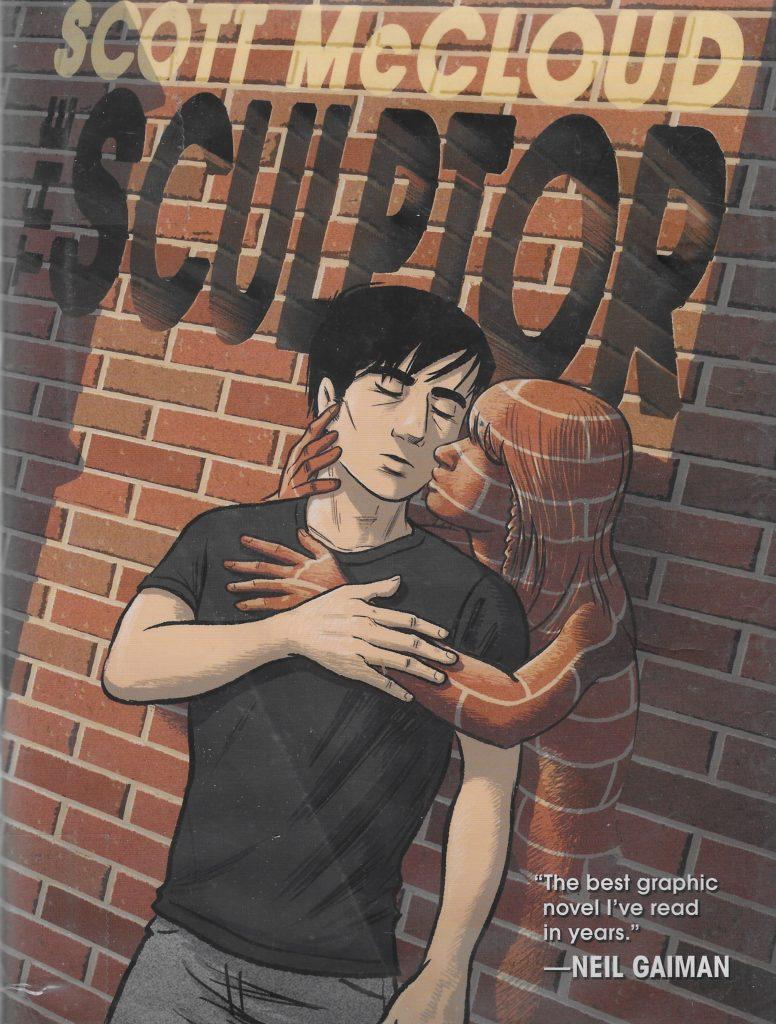
By Angela Huang, staff writer
In Scott McCloud’s graphic novel, The Sculptor, David Smith makes a deal with Death to gain the power to sculpt anything for two hundred days, dying once those days are up. However, David’s plan to dedicate the remainder of his life to making a name for himself is thwarted when he falls in love with an actress, Meg. McCloud’s graphic novel is about more than an artist’s struggle to create meaningful art; it is a lesson on appreciating the small joys of life.
I enjoyed this novel for its messages, which McCloud conveys beautifully through his simple yet dynamic art. He uses blue ink to dramatically emphasize David’s somberness and depression from being in an artblock and the burden of not selling enough sculptures to pay his rent. The art style is mainly McCloud’s plain cartooning with just a hint of the occasional manga influence. He draws David bending materials such as marble, the sidewalk, street lamps, and even his own face to his will just by being in contact with them. McCloud showcases his artistic talents in scenes where David contorts those materials into waves as though they’re liquids instead of heavy solids.
The story’s pacing is well done overall. The thoughtful composition of the panels make the novel feel cinematic, as though I was reading a storyboard of a movie instead of still images.
However, the middle section is exhausting (some of it was intentional I believe, but most of it was overdone) due to the cringe-worthy romance between Meg and David. Meg is a promiscuous, depressed, but caring struggling actress. She and David have a fantastical initial meeting where she literally flies into his life and readers learn it is not an elaborate fantasy until many unnecessary scenes after her initial appearance. Though Meg’s character is interesting, she doesn’t reach her full potential by the course of the story. Instead, she remains as David’s Manic Pixie Dream Girl: a quirky objectified female muse who’s also his love interest and a plot device to advance McCloud’s message of enjoying the life you already live to the fullest.
Even though Meg’s character was frustrating, I was addicted to reading the novel. I had to know if David could cheat his way out of dying or if he was finally going to get famous. McCloud’s masters magical realism. He crafts Death’s backstory and powers carefully, making David’s plight even more sad` as they interact and trade life stories with each other. David’s character is very realistic. Being an artist myself, I recognized and empathized with his struggle to create art and the frustration that it would never be understood by anyone else.
Even though The Sculptor relies on some cliches, reading it made me realize that sometimes being too passionate about the things we love, in this case, David’s passion for art, can be harmful. In all, McCloud’s novel was worth the read.

































